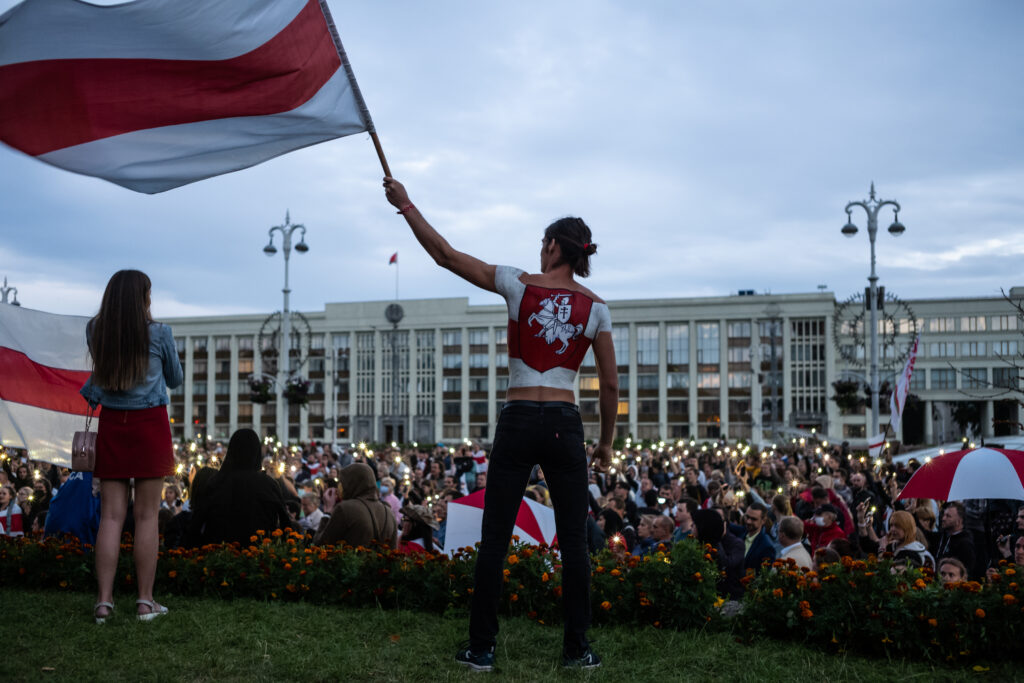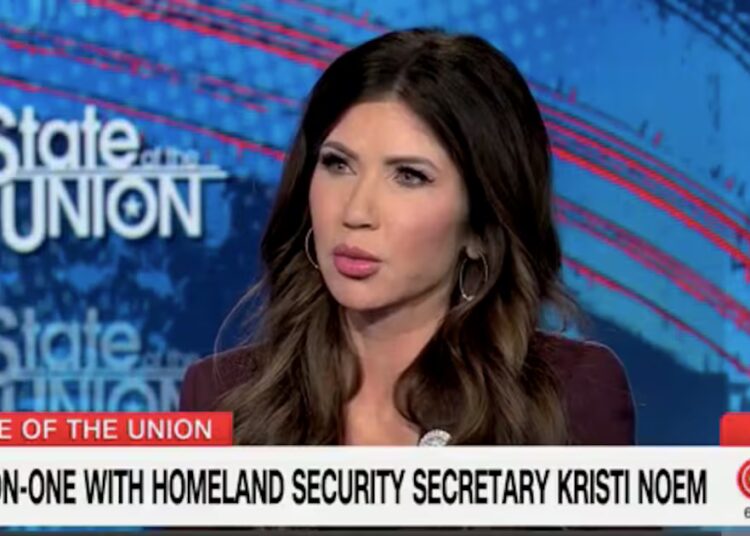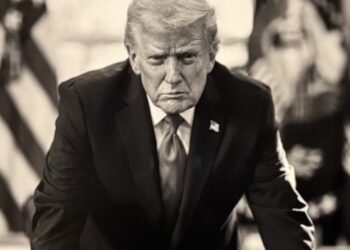Sergey Tihanovski is a Belarusian political activist and former presidential candidate.
“Politics is a dirty business! You should have been ready for anything! There are no rules!!”
These warnings were from the authoritarian leader of Belarus to his political opponents when he personally came to the KGB detention center in Minsk after stealing the 2020 election.
Belarusian President Alexander Lukashenko talked for five hours straight. There were 12 of us in that room. Every one arrested on fabricated charges. Every one later sentenced to absurd, brutal prison terms. Two of us were presidential candidates — I was one.
I refused to shake the thief’s hand. I refused to ask for a pardon. For that, I received nearly 20 years.
If not for President Donald Trump’s unorthodox diplomacy, I would not be writing these words. An unexpected June meeting in Minsk between Lukashenko and Gen. Keith Kellogg, Trump’s special envoy to Ukraine, led to my release after almost five years in solitary confinement. It was an outcome no one anticipated — and one that reminded me that diplomacy, when pursued creatively, can still change lives.
Almost five months into my freedom, I have been catching up with the world I reentered. The picture is sobering. The old global order has dissolved. We are witnessing a Cold War 2.0 with three main theaters: Europe, the Middle East and the Indo-Pacific.
In Europe, the Biden administration’s management of the war in Ukraine has been hesitant and reactive. Aid came too little, too late; weapons were drip-fed, and Ukraine was repeatedly told not to hit targets inside Russia. The result is a war of attrition that Ukraine cannot win on the battlefield — but could still win diplomatically.
Winning that peace demands creative statecraft and a clear strategy. The United States must rediscover the mix of deterrence and engagement that once defined successful American leadership. It would be fair for Europe to shoulder more responsibility for its eastern frontier, especially while the U.S. is overstretched elsewhere. But without American leadership, Europe still struggles to act with unity or resolve.
In the Middle East, Israel has shown the will to defend Western civilization’s front line. The West’s adversaries are not only Russia, China or Iran, but also internal forces that erode self-confidence and moral clarity. Many in Washington still talk wistfully about a “reverse Kissinger” — the idea of decoupling Vladimir Putin from Xi Jinping. That is wishful thinking. These men are bound not by affection but by shared opposition to a Western order. And just as Lukashenko cannot be separated from Putin, Putin cannot be separated from Xi.
It remains nothing short of providential that Trump survived the assassination attempt last year in Butler, Pennsylvania. Had he not, the struggle for Western civilization would be in far greater disarray. Trump’s instincts for direct engagement, calibrated pressure and transactional diplomacy are what the moment requires.
Which brings me to my native Belarus — and why it matters far more than most in Washington care to admit.
Imagine for a moment that, in 2020, when the Belarusian people flooded the streets demanding change, the West had been prepared — with a coherent strategy, resources and the will to act. Had Belarus not been abandoned to Lukashenko’s repression, Putin would have faced a political awakening on his own border — one that could have reshaped the balance of power in Eastern Europe before the first Russian tank rolled into Ukraine.
For too long, the West has treated Belarus as a gray buffer between Russia and NATO — a small country of limited consequence. That complacency has been one of the Kremlin’s greatest strategic gifts.
So what now? The message from the Belarusian opposition for the past five years has been clear: “Save us. Help us remove the dictator. Let us join the European Union and NATO.” It is naive. The hard truth is that Belarus will not join NATO or the E.U. anytime soon. Pretending otherwise only fuels Moscow’s paranoia and traps Belarus in perpetual dependency.
My message today is different.
First, we must adjust the goals. They have to be realistic. To avoid military confrontation, we should look to history for guidance. Cold War-era Finland offers a model. Finland managed to maintain freedom under pressure and reach one of the world’s highest living standards. Its neutrality was not appeasement; it was containment by other means. A neutral Belarus — free, sovereign and nonaligned — could serve everyone’s interests. It would provide a buffer without becoming a pawn, a stabilizing element rather than a flash point.
Second, we must reinvent the opposition. It must learn to think in terms of power, not victimhood. Lukashenko is not immortal. Power in Belarus will shift — perhaps soon, perhaps unexpectedly. When it does, the direction of that change will depend on who is ready to act first. We must build a new political class — effective, forward-looking and capable of shaping the country’s future when the moment of change arrives.
Third, we need real allies. We do not need the West to patronize us; we need the U.S. to recognize its own interests in Belarus becoming the next Finland — and to play a proactive role in shaping that outcome.
Arriving at such a Finland-like arrangement will not be easy. Negotiating with Lukashenko is distasteful but sometimes necessary — a tactical step that can help free more than 1,400 political prisoners languishing in Belarusian jails. Yet it is not a long-term solution.
The window of opportunity will open again, as history always does. When it does, the U.S. must be ready to lead, to seize the chance to turn Belarus from a gray buffer into a stabilizing bridge on Europe’s frontier. The cost of hesitation would be measured not only in lost influence, but in the further unraveling of the order America once built.
The post I was in solitary for 5 years. My country can do better. appeared first on Washington Post.




